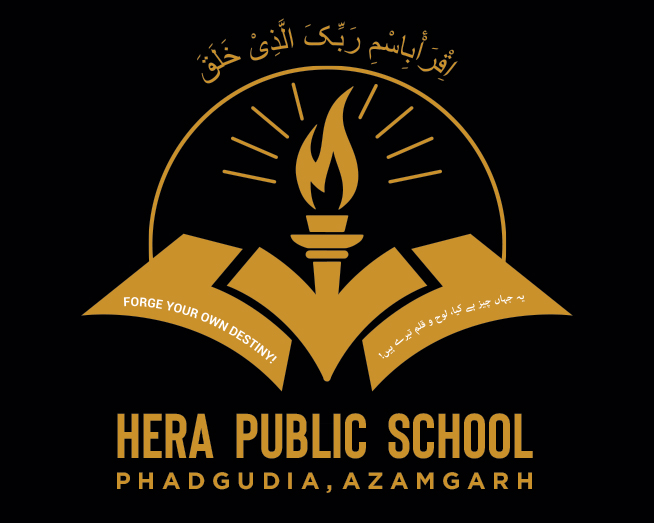About Hera Public School
-
Individual
approach
-
Team of
Professionals -
Development of
Creativity -
Friendly and
comfortable environment
History
In the mid-1950s, Phadgudia which is located at Km 45(about 3Km from Phulpur) along the Shahganj – Azamgarh Road (SH34) in the western part of Azamgarh, was a small village of about 50 households (30 Muslim and 20 Hindu families). Those who went to school in that period would remember well of Hafiz Abdus-Samad of Nonari who taught the Quran and basic religious books in the house of Haji Mukhtar Saheb. After a few hours with Hafiz jee most of the boys and some girls would attend the nearby Islamia Primary (Urdu medium) school in the village.
This arrangement of education existed for many generations in one form or another and under different teachers. Among the most notable teachers were Saghir saheb of Waleed-pur, Yasin saheb of Takia-Ambari, Nizamuddin sahib of Khalispur and Shukrullah sahib of Mahul. A very prominent member of our school Engr. Tarique Azam (Chairman) says, “I was personally under the tutelage of Ustade-mohtram Janab Nizamuddin sahib who taught with such dedication, love and humility and created such inquisitiveness and thirst for knowing more that even today I feel highly indebted to him for whatever I have achieved in life. He showed me how to balance the spiritual and material needs of life. He taught me mathematics with special vigour and showed me its inner beauty and philosophy such that I sincerely consider maths as nature’s poetry which one can enjoy no less than the best of poetry. Sometime in mid-seventies (1970s) the village people got together and built a one room- Madrasah in which Hafiz Mukhtar sahib(my maternal uncle or mamu) of our village gave darse-Quran and continued the tradition. This continued till late nineties when I visited the village with my family and spent there about two weeks in 2000.”
He adds ”I realised that the school was in a very deplorable condition and totally in-adequate for the purpose. I was also informed that the primary school which gave me such a quality education was no more Urdu-medium. Teaching and discipline had become so poor that the villagers had stopped sending their children altogether. With fewer and fewer Muslim students, the school had progressively turned into a Hindi-medium government primary school where the principal activity, now a days, is mid-day meals. A meeting of the village people was called and a proposal to build a proper primary school/madrasah where an integrated curriculum of revealed and secular education would be implemented was unanimously accepted.”
Mirza Ashhad Beg, a local registered civil engineer, was commissioned to prepare plans for a five class-room school with a small library, computer lab and toilet facilities. Foundation was laid in the year 2000 itself and classes started in 2001 in partially completed facilities. The school was fully completed in early 2003 however; the official inauguration took place on March, 2006 with the hands of Janab Alam Badee Saheb, the local MLA. Until very 19th recently the school was using Urdu as medium of instruction with English and Hindi taught as subjects. Along with the state primary curriculum, Islamic religious teaching is provided whereby when students complete the standard five (5), they not only know how to read the Quran but also are well-versed in basic religious teachings, practices and values.
Our Vision & Mission
Vision Statement:
- To revive the concept of Excellent Community (خيرأمت), Quran(3:110))
- To build a community at the very grass root (village) level, where the excellence, material welfare and moral up-rightness of the individual is firmly rooted in and reflected in the unity, social cohesion and harmony of the community.)
Mission Statement:
- To address the educational backwardness of the community
- To work for the economic, social and political empowerment of the community.
- To inculcate among the members the honour and importance of hard work, serving others and community work.
- To inculcate among members the respect and preservation of the physical environment and improve the physical infrastructure of the community by collective effort.
- To help the weaker and under-privileged sections of the society, especially in the field of education and skill training.
Our Values:
TAQWA (Piety, Fear of GOD)
| IMAAN (Faith) |
SUCCESS |
ILM (Knowledge) |
|---|





